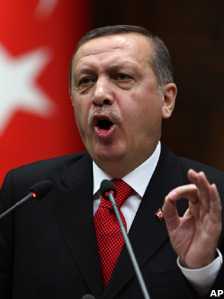Lesson 10
Personal adjectives and personal suffixes
(iyelik sıfatları ve iyelik ekleri)
To talk about things which belong to us or someone else, we use personal adjectives and personal suffixes. Unfortunately it is not as easy as English. In English you just put ‘s to indicate the possession for example;
Selma’s pen, Kerry’s hair.
In Turkish after the person’s name you bring ‘ın, ‘in, ‘un, ‘ün. It does not stop there you also need to put the possessive suffix after the word which is possessed. Examples will make it more clear;
Ahmet’in kalemi
Susan’ın defteri
John’un evi
Sultan’ın makası
Darren’ın saçı
*Efe’nin kız arkadaşı
*Ayla’nın arabası
* The letters in blue are the buffer letters which we mentioned before. They are there to help us to pronounce the words easily. In Turkish it is very unlikely to have 2 wovels one after another in the same syllable. When this happens we need to put a buffer letter between 2 vowels. Just to remind you again; the buffer letters are Y,Ş,S,N.
Let’s have a look at the possessive adjectives (iyelik sıfatları)
| Benim my |
| Senin your |
| Onun his/her/its |
| Bizim our |
| Sizin your |
| Onların their |
After these personal pronouns there should be a word.
My car, your house……
– If the last syllable of the word has (e or i), the suffixes will be im, in, i, imiz, iniz, i. Let’s use “ev” with our personal adjectives.
Benim evim Bizim evimiz
Senin evin Sizin eviniz
Onun evi Onların evi or evleri
– If the last syllable of the word has (a or ı), the suffixes will be ım, ın, ı, ımız, ınız, ı.
Benim kızım Bizim kızımız
Senin kızın Sizin kızınız
Onun kızı Onların kızı or kızları
– If the last syllable of the word has (o or u), the suffixes will be um, un, u, umuz, unuz, u.
Benim kolum Bizim kolumuz
Senin kolun Sizin kolunuz
Onun kolu Onların kolu or kolları
– If the last syllable of the word has (ö or ü), the suffixes will be üm, ün, ü, ümüz, ünüz, ü.
Benim yüzüm Bizim yüzümüz
Senin yüzün Sizin yüzünüz
Onun yüzü Onların yüzü or yüzleri
– Let’s try “çanta” this time. Please note that çanta ends with a vowel so we will not need the first vowel in the suffix.
Benim çantam Bizim çantamız
Senin çantan Sizin çantanız
Onun çanta+s+ı Onların çanta+s+ı s is the buffer letter.
I know it all looks so confusing a comlicated. But once you get used to the rules it will all come naturally and you will not think about the letters, vowels, buffers…. This is why Turkish is best learn by hearing it. Obviously it is always an advantage how to write and spell correctly.
More examples;
Kızın saçı (The girl’s hair)
Hande’nin elbisesi (Hande’s dress)
Müdürün odası (The manager’s room)
Firmanın müdürü (The company’s manager)
Senin annenin parfümü (Your mother’s perfume)
Christina’nın parası (Christina’s money)
Oğlumun okulu (My son’s school)
Doktorun muayenesi (The doctor’s office)
Mimarın babası (The architech’s father)
Evin camı (The window of the house)
Benim karım (My wife)
Senin eşin (Your partner)
Onların arabası (Their car)




 I’m
I’m